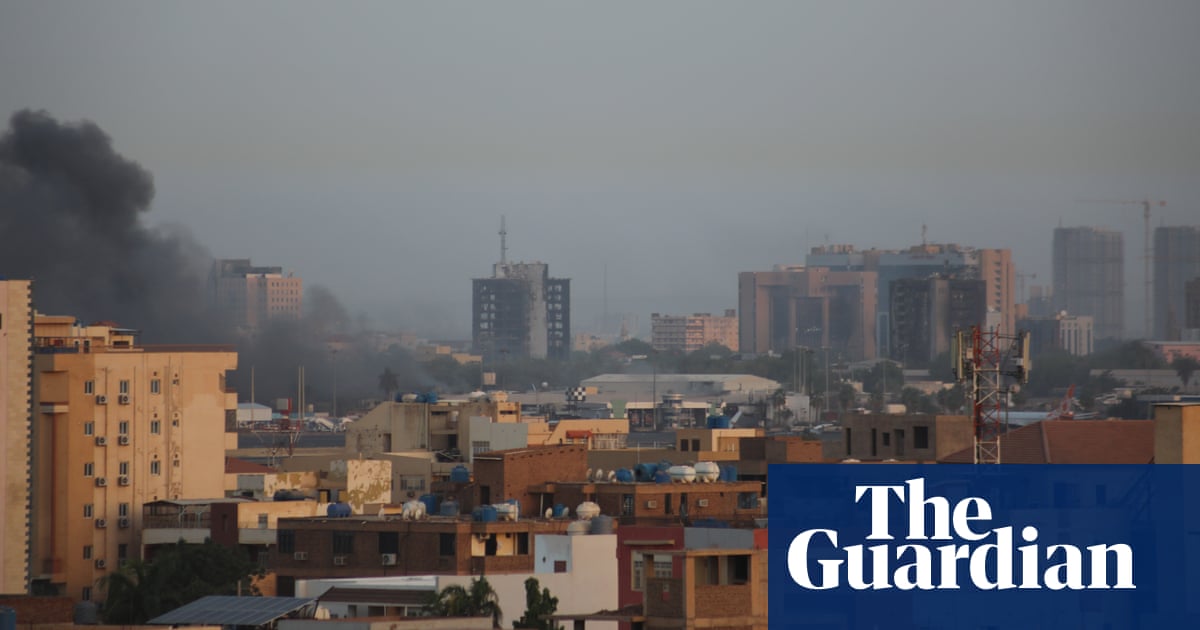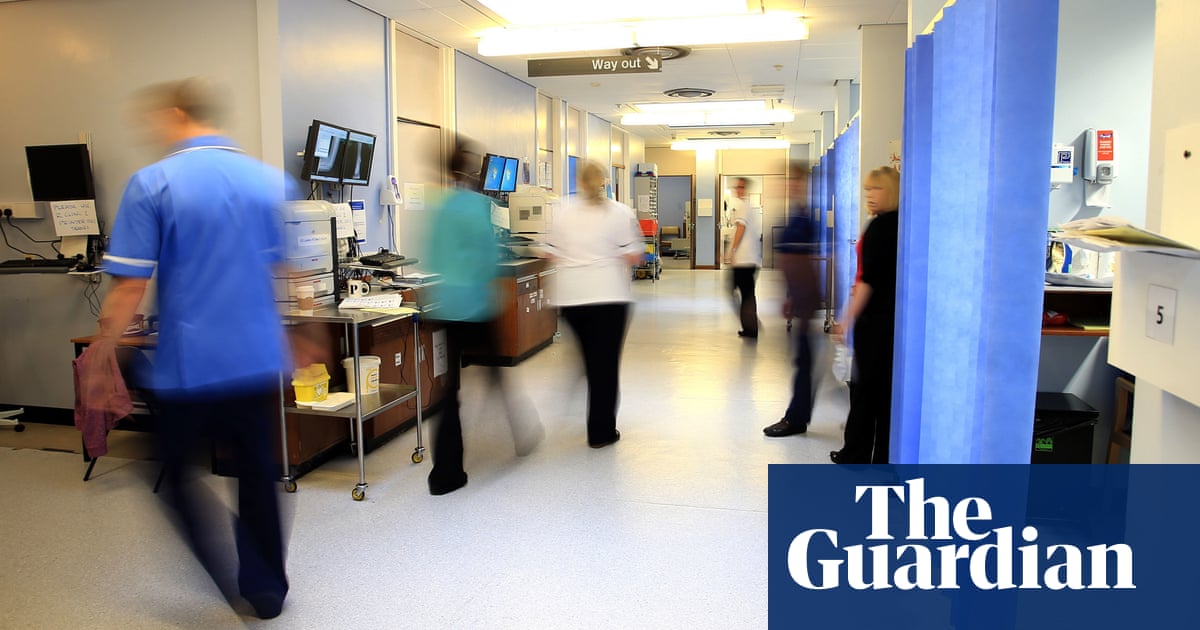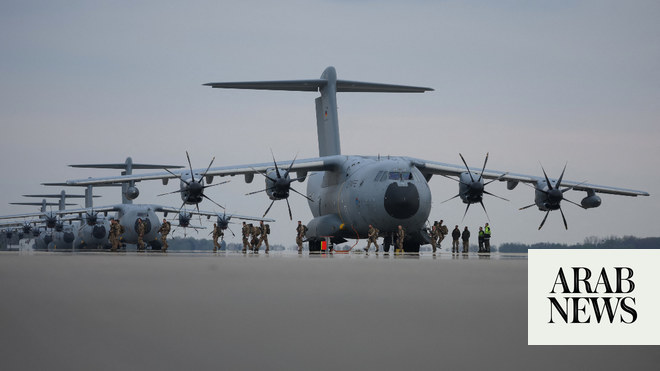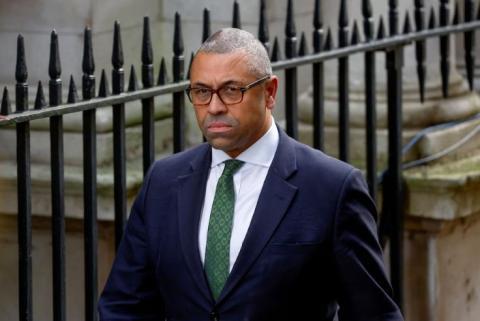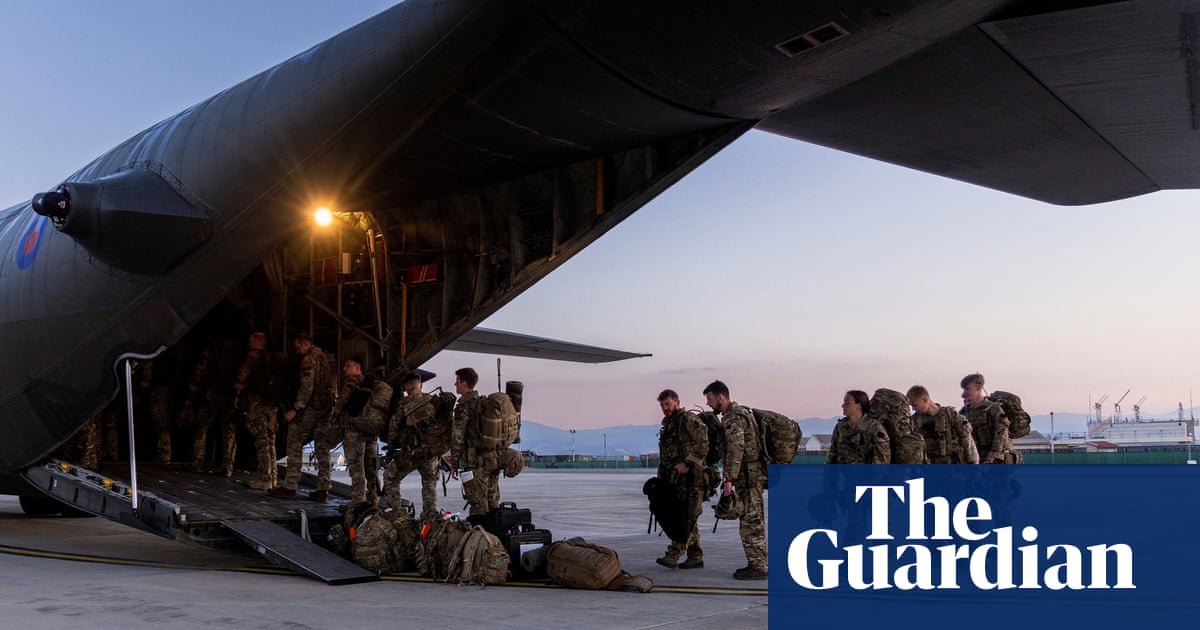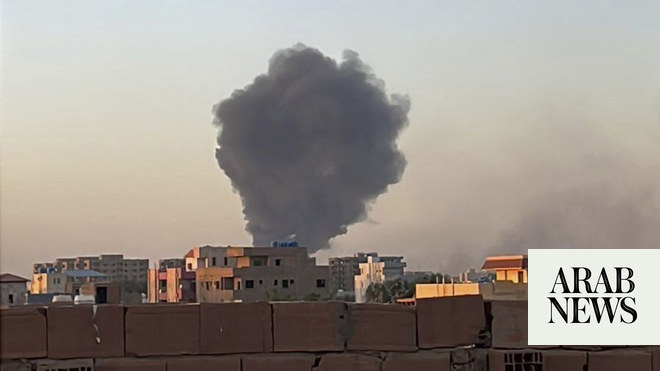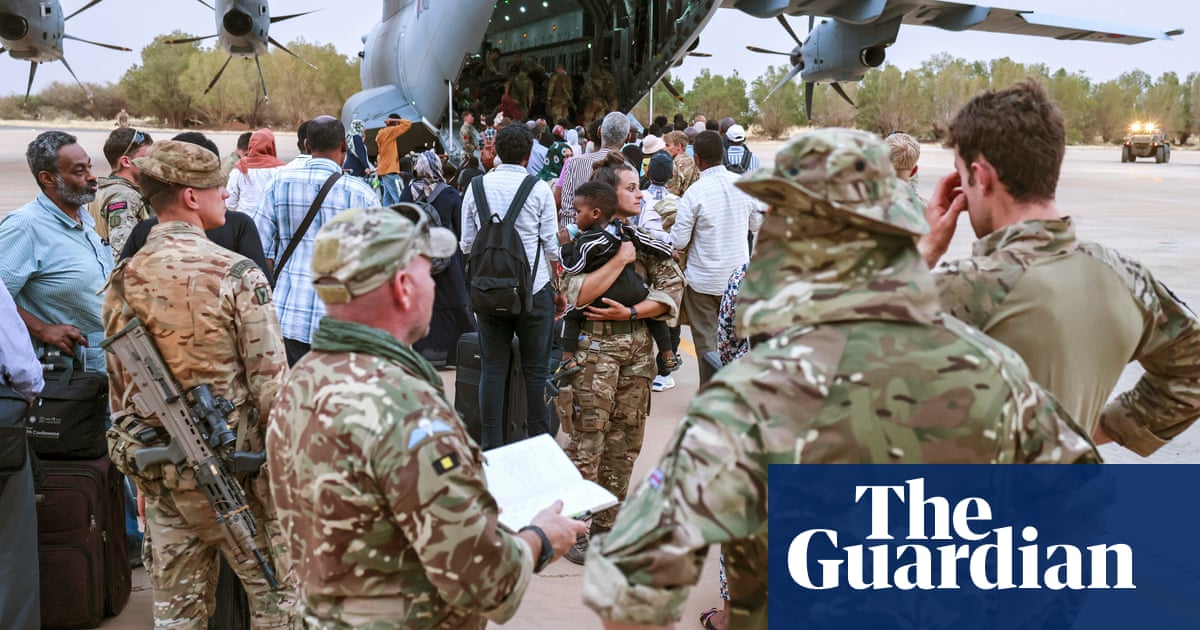
NHS doctors and British nationals faced a treacherous route to reach an airbase north of Khartoum before a deadline for evacuations, amid ongoing airstrikes and artillery fire in the Sudanese capital.
Hundreds of people were told to find their own way to an evacuation centre at the Wadi Seidna airbase, about 14 miles (20km) north of Khartoum and its twin city, Omdurman. They had to navigate ongoing fighting as the Sudanese Armed Forces continued to attack positions across the two cities, while members of the paramilitary Rapid Support Forces hid among civilian buildings.
Ahmed al-Mufti, a human rights advocate and resident of Omdurman, said: “The army appears to be following individuals, or groups of two or three RSF soldiers. Things get dangerous as it’s impossible to tell where they’re moving to, and the air force [SAF] is following them to try and destroy them on the ground.”
Airstrikes and street battles have continued across the capital, in breach of a nominal ongoing ceasefire that is supposed to last until Sunday night. On Friday night, an airstrike hit a religious school in Omdurman, while residents in central Khartoum reported hearing clashes between SAF and RSF forces.
Akram Ahmed, from Wad-Nwabwai, close to the el-Said Abdulrahman mosque where the airstrike hit, said: “There was a loud sound from an airstrike this morning, it woke people up and sent them running. Last night, a fragment from an anti-aircraft missile hit the mosque and injured two pupils. The school, a boarding school, has emptied out now.”
A second airstrike early on Saturday hit a district in south Omdurman, killing one man identified as 37-year Mohamed Ali, who neighbours said had evacuated his wife and two children to safer districts but had remained to guard the family home.
“He was sitting in front of his house with his friend who was badly injured. He died immediately from flying shrapnel that also damaged his house. Luckily his children were not inside,” said his neighbour Intisar Fadul. Fadul had also remained in the area to guard her home.
The airstrikes andfighting have left frightened residents across both cities sheltering in their homes. Fighting intensified throughout the day on Saturday, while SAF sources said they deployed additional troops to the capital.
Despite the volatile security situation, NHS doctors, British passport holders and residents were told to navigate streets, boulevards and bridges that have transformed into an urban battleground since fighting began two weeks ago.
Those hoping to board evacuation flights had until midday on Saturday local time to reach Wadi Seidna and register for a flight before the airlifts stopped – a deadline that has now passed. The BBC reported that the Department of Health and Social Care sent a message on Friday night to NHS doctors in Sudan, instructing them to make their way to the military base, which has a rough airstrip.
The British ambassador to Sudan, Giles Lever, previously told people it was “absolutely critical” they evacuate via the airbase and urged “all British nationals to travel to the evacuation centre at Wadi Seidna airfield as soon as possible”.
Sherine Tadros, of Amnesty International, pointed to previous instructions from the Foreign Office that British nationals travel to Port Sudan, on the Red Sea coast, an 11-hour journey from Khartoum. “You are now telling them to go back, 800km (500 miles), to a base near Khartoum (and near the fighting’s epicentre),” she said. A British military ship, HMS Lancaster, remains in Port Sudan.
Oliver Dowden, the deputy prime minister, said on Friday night more than 1,500 people had been evacuated, and there had been a “significant decline in British nationals coming forward”, meaning it was time to end the operation.
The last airlifts occurred amid a scramble to ensure NHS doctors with leave to remain in the UK would be able to board the evacuation flights with their dependents, after pressure from a medical union. Doctors with such immigration status were told to bring their relatives and proof of NHS employment as they fled Sudan. Many had travelled back to see family during the Muslim holy month of Ramadan when fighting suddenly erupted.
Earlier, the British Medical Association urged the foreign secretary, James Cleverly, to allow the evacuation of NHS medics who were being prevented from leaving because they did not have UK passports.
Dr Abdulrahman Babiker, a Sudanese-born registrar at Manchester Royal Infirmary, told Newsnight he had been prevented from flying back to the UK after arriving at the Wadi Seidna airbase.
He said he had worked in the UK throughout the Covid crisis and felt “totally betrayed” by the ban on holders of work visas, which has continued all week despite repeated lobbying from medical groups and unions.
The BBC reported Babiker had now been evacuated and caught a flight that landed in Cyprus on Friday evening.
Doctors and nurses from around the world work in the NHS, including 1,253 from Sudan, according to figures collected by the House of Commons library.




